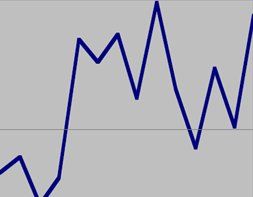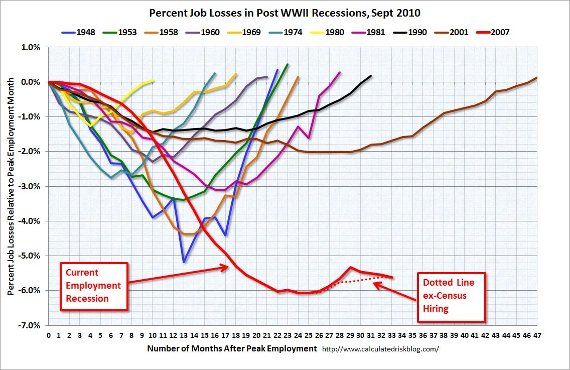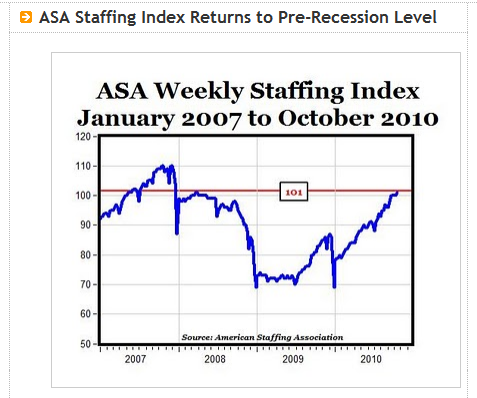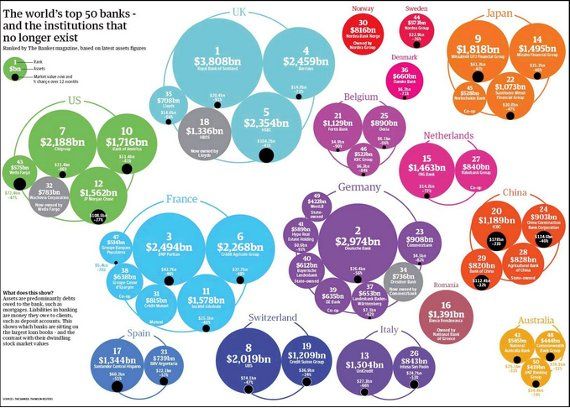<firstimage="https://www.makeuseof.com/wp-content/uploads/2010/11/econblogthumb.jpg">
One of the most common questions of the last few years has been "how did we get into this mess?" Understanding why the global economic problems occurred, and what issues are currently relevant, isn't easy. TV pundits and politicians have their opinions, but they're often contradictory, resulting in further confusion.
But worry not, layman economists! Although economics is complex, it doesn't necessarily need to be out of your grasp. There are numerous blogs across the Internet that provide interesting, timely information and argument about the economy of both today and tomorrow. More importantly, the econ blogs out there are written in a language you can actually understand.
Calculated Risk
If you're looking for the latest information about current economic conditions in the United States and, to a lesser extent, the world, Calculated Risk is the place to be. This blog can be a little bit daunting at first because of the volume of information that it delivers and the initially obscure nature of the graphs and post titles.
Dive into the posts themselves, however, and you'll find that Calculated Risk does a pretty good job of summarizing what's important and leaving out what isn't. The blog also does regular round-ups that point out the most important news of the last week and the most important upcoming announcements.
Calculated Risk doesn't delve much into economic history or theory, but it's an amazing blog for people who want to learn about what's happening right now. They also have really awesome graphs!
Carpe Diem
Staffed by Mark Perry, a professor of economics at the University of Michigan, Carpe Diem is a centrist current economics blog that tends to skew towards covering "weird" or "unique" topics - one series of posts argues that increasing voter turnout would not have any major effect on the outcomes of elections, for example. Whatever the topic, however, Mark does a good job of providing clear posts that don't fall into using too much economic mumble-jumbo.
Carpe Diem is also one of the few blogs that has been posting positive economic news on a fairly regular basis. If you're a glass-half-full kind of person you'll probably enjoy this blog.
China Financial Markets
There is no question that China is an important part of the global economy, but the economics of the country in which a sixth of the world's population resides isn't usually explored by western media outlets. China Financial Markets fills that gap.
While published in a blog format, China Financial Markets is more like a single-article online magazine. New posts occur only about once a week, but they're incredibly long and very detailed - I'd say the average post is between 1,000 and 2,000 words. This is probably the hardest blog listed here to understand, and at least part of that difficulty is due to the fact that the posts may touch on people, objects and locations you've never heard of before. It's an incredibly insightful blog, however, and well worth your time.
Freakonomics
This pop-econ blog is, like the book of the same name, focused on strange and unusual economic outcomes that occur throughout the world. The blog features posts from the authors of Freaknomics, but includes occasional posts from other contributors as well.
You won't find much serious economic talk on this blog, but what you will find are engaging posts about economics that are easy to read and easy to understand. If you're very new to reading about economics, and you're not ready to jump into the heavier stuff just yet, reading Freakonomics for awhile can get you into the right state of mind - and the fact that this blog isn't serious business doesn't mean you won't learn anything.
The Big Picture
If you take Calculated Risk's tendency to post cool graphs, add a dash of political opinion, and smother the whole thing with some in-depth economic analysis, what do you get? The Big Picture.
Created by Barry Ritholz (the author of Bailout Nation), a financial journalist and money manager, The Big Picture provides timely posts about current economic events and laces them with engaging, well written commentary. Although the author of this blog has Wall Street ties, this is not a blog built to sell the author's services or trumpet Wall Street's successes while neglecting its failures. Instead, The Big Picture acts as a watchdog - many of the blog's posts are about how poor behavior on the part of Wall Street is having negative economic consequences.
The Conscience of a Liberal
There are few economists who are controversial as Paul Krugman, the Noble Prize winning professor who, as the title of his blog suggests, stands defiantly on the political left. What really makes Krugman's blog stand out from the crowd, however, is the ease with which he makes his economic arguments accessible. Although he occasionally falls into deeply academic talk, his posts are for the most part laid out in layman's terms. They address specific points, as well, which makes it easier for economic newbies to follow what's being discussed.
The Conscience of a Liberal is a bit of a pessimistic blog (at least at the moment) so be warned that you may come away deeply afraid that you and everyone you know will lose their jobs and never be able to find another one, ever. There is a reason why the New Yorker once ran a comic depicting Krugman as a street preacher foretelling the end of days.
Conclusion
Reading these blogs won't necessarily turn you into an economics professor overnight. These blogs will, however, give you a much better perspective on current events. So what are you waiting for? Start learning, real good!







